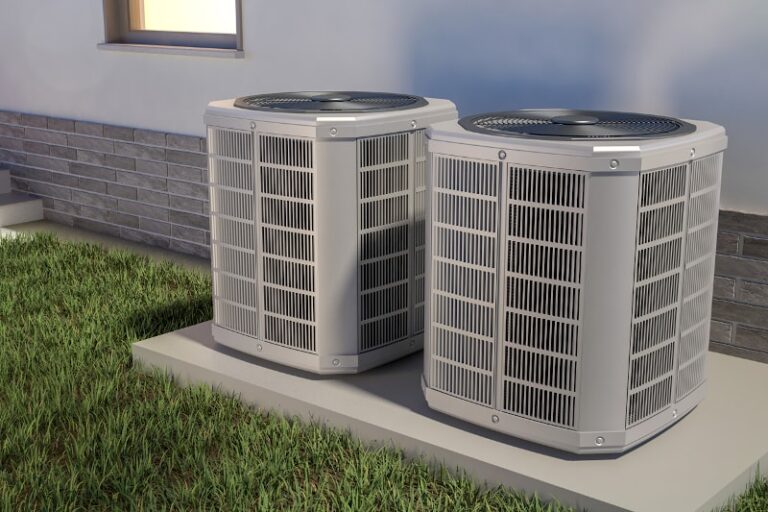Heat pumps are a popular HVAC system used in Charleston, SC. Instead of having a separate furnace and air conditioner, they allow you to heat and cool your home with a single system. Read on to discover how heat pumps work, including the types of heat pumps available.
Basics of Refrigerant Systems
Unlike most furnaces, heat pumps do not burn fuel to generate heat to warm your house. Rather, they are more akin to an air conditioner, using a refrigerant to absorb heat. That refrigerant can be used to heat air or to expel heat from it, letting you both heat and cool your home.
Heat pumps contain coils that refrigerant flows through. In heating mode, the pump sends refrigerant to the unit that sits outside, where it absorbs the heat from its surroundings, then flows inside to release that heat into the air your HVAC system circulates throughout your home. In cooling mode, it’s similar, but in reverse—the refrigerant absorbs heat from the air indoors, then the pump circulates it to the coil outside to expel that heat.
Types of Heat Pumps
The most common type of heat pump is the air-sourced heat pump, which has a unit that sits outside. As the name suggests, it uses the air outside as the source from which to absorb heat during the winter. The normally mild temperatures around Charleston make air-sourced heat pumps very effective.
Also in the heat pump family are various geothermal systems. The ground-source system uses refrigerant coils buried on your property below the frost line. Instead of absorbing heat from the ambient air, it takes it from the ground on your property.
The third type, also considered a form of geothermal, is the water-source heat pump. Rather than burying refrigerant lines in the ground, they run through deep water. The only caveat here is that the water must be deep enough not to freeze when the temperature drops.
Defrost Mode
As your heat pump works, condensation can form on the coils and even on the units themselves, which can eventually freeze. A light amount of frost is not unusual for air-source heat pumps, but heavier amounts can impact their efficiency, which is why they have defrost modes built in. In defrost mode, your heat pump won’t condition your air, but it should only last a maximum of 15 minutes before resuming its normal activity.
Critical Heat Pump Parts
Heat pumps have several critical components that allow them to work effectively. Regular heat pump maintenance is the best way to ensure each of these components continues to operate optimally.
The first is the reversing valve, which lets heat pumps both heat and cool your home. When you change your thermostat from heating to cooling (or vice versa), it sends a signal to an item called a solenoid that’s inside the valve. This solenoid then determines the flow of the refrigerant in your system, with one way leading to cooling and the other to heating.
Your system may need a backup heating source during record cold weather if you have an air-source heat pump. Each unit comes standard with electric resistance heat strips to provide a needed boost to ensure it continues heating your home.
The control board gets very little attention but is as important for controlling your unit as the thermostat. This is effectively the computer that evaluates input from the various sensors throughout the system. Depending on your thermostat setting and the input received, it may trigger defrost or initiate a heating or cooling cycle.
Get the best heat pump for your home by having an HVAC professional evaluate your needs and help you go over the variety of options available. At M & B Heating and Air in Charleston, SC, our technicians are trained in a variety of HVAC services, from heating and cooling installation to repairs and more. Call us at M & B Heating and Air to schedule heat pump maintenance or a geothermal or air-source HVAC system installation today.
Image provided by iStock


